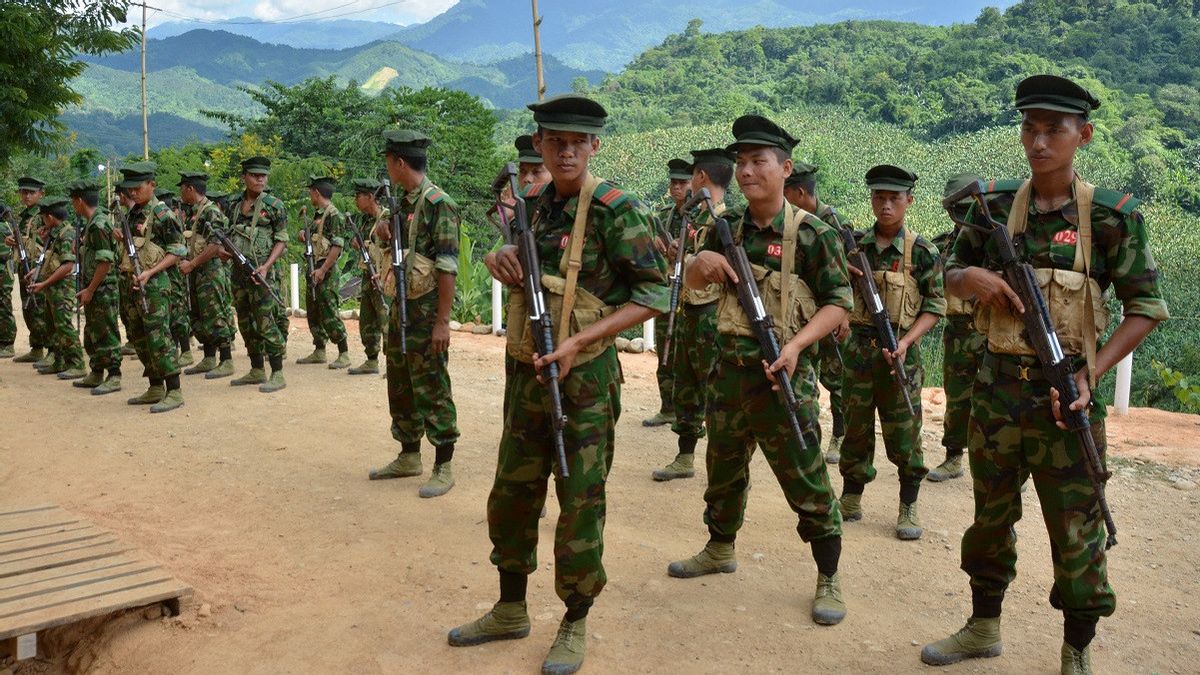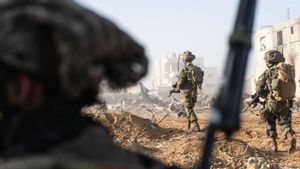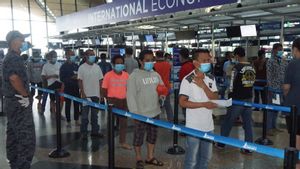
JAKARTA - China's refusal to condemn the Myanmar military regime is considered by the UK-based think tank Chatham House, to jeopardize the future of China's interests in Myanmar.
Chatham House senior researcher Gareth Price said in his research report that the lack of criticism of the Myanmar military takeover shows China's vested interests, regardless of who is in power in Naypyidaw (Myanmar's capital).
"China may feel that, whatever the outcome, China will continue to be Myanmar's main partner. However, that feeling may be a misjudgment because, if the military is forced to step down, it could result in a more pronounced anti-China tilt, threatening its strategic interests", explained Price such as launching The Irrawaddy.
"China's laissez-faire attitude has so far put them under threat, as several Chinese factories have been set on fire and protesters are threatening to blow up pipelines. The optics surrounding China's de facto protection of the military are not good internationally", the political risk analyst said.
Myanmar is key to China's Belt and Road Initiative (BRI), which has the potential to provide Beijing with access to the Indian Ocean via the Kyaukphyu Special Economic Zone in Rakhine State.
Since the February 1 coup, China and Russia have blocked action at the UN Security Council. The anti-Chinese sentiment is rapidly rising in Myanmar and protesters are calling for opposition to all Chinese projects and imports.
Beijing has called for dialogue and called the coup an "internal affair", saying the international community should not interfere.
"But if China stops 'not meddling', this could allow for broader international action and, although it may threaten Chinese interests in Myanmar in the short term, will likely advance them in the long term," said Price.
In his opinion, Myanmar's generals have no intention of handing over power but, without China's approval, they face significant challenges trying to hold on to it.
"China needs to realize that a 'one size fits all' no-interference policy is not going to win over many friends, and whatever it does win tends to be the less healthful kind", he wrote.
Price further warned of a more worrying matter for China, namely the union of all ethnic armed Myanmar to oppose the military regime.
"It should also be considered that the situation in Myanmar may still lead to civil war, especially given the stance taken by ethnic groups. It will also threaten China's interests", Price said.
Tensions between Myanmar's military regime and ethnic armed forces are increasing, particularly in Kachin and Shan States, where many Chinese projects are planned, including three zones for cross-border economic cooperation, the Muse-Mandalay railway line, and the Myitkyina Industrial Zone.
Fighting between the Kachin Independence Army (KIA) and the Myanmar military was reported throughout Kachin and the northern Shan states. KIA launched attacks on military and police positions, saying they were supporting the protesters.
Also, tensions were rising with the Karen National Union (KNU) in the districts of Papun, Nyaunglebin, and Thaton. The KNU urges the military to release all detainees and stop all crackdowns on peaceful protesters.
Meanwhile, the Brotherhood Alliance, which includes the Myanmar National Democratic Alliance Army, Ta'ang National Liberation Army, and Arakan Army, condemned the military regime, warning that it is ready to join all ethnic minorities to fight the regime if the killing of protesters continues.
Following the Brotherhood's commemoration, China has reportedly requested a meeting with the regime over growing concerns about the safety of its oil and gas pipelines. China is pressing the regime to strengthen the security of its oil and gas pipelines, especially in northern Shan State where tensions are particularly high.
"If China takes a more critical approach and pushes Myanmar's military to step down, the possibility of a coup can be seen as a temporary aberration. The more people die, the more absurd this will make, increasing the likelihood of civil war".
It is known, based on data from the Assistance Association for Political Prisoners (AAPP), it was reported that at least 564 civilians were killed during Myanmar military anti-coup rallies.
Myanmar Coup. The VOI editorial team continues to monitor the political situation in one of the ASEAN member countries. Casualties from civilians continue to fall. Readers can follow the news surrounding the Myanmar military coup by tapping on this link.
The English, Chinese, Japanese, Arabic, and French versions are automatically generated by the AI. So there may still be inaccuracies in translating, please always see Indonesian as our main language. (system supported by DigitalSiber.id)












